Eragon.
Psychology Version.
Long ago the land of Alagaësia
was ruled by men riding mighty Dragons,
their mission was to protect and serve; and for millennia people lived in
prosperity. Nonetheless, the Dragon Riders became arrogant, and began fighting each other for power. Both the Dragon Riders and their Dragons were
nearly all killed due to Galbatorix's betrayal; since then he has suppressed
all rebellion, including freedom fighters called Varden: On the analytic side, we can consider how an education that
is too permissive and without moral norms, can lead the descendants
to become arrogant and presumptuous. In this regard, we can note that sometimes
there are educators who prefer one child over another; and this preference is experienced by the
children as feeling better than others. It may happen that a parent punishes a
child for making a mistake, while the same
mistake made by the favorite child... is not considered such. Spoiled
children risk becoming proud, arrogant,
haughty people and risk behaving aggressively towards others. In fact, we can
see how some adults who have been spoiled by their families are people who,
believing themselves Gods descended
from Olympus, perceive other people as servants
at their command. These people spoiled by family members, have not developed a psychic apparatus based on reality and true love. Let's reflect... how does the child's Ego develop? Reflecting and mirroring in the attitudes and feedback received from the parent. Therefore, if the parent makes
the child believe that he is a demigod
to whom everything is lawful to give and grant, then the child risks perceiving
itself in a distorted way. In other
words, as the spoiled child grows up, he will mistake for love… possession, he will confuse for
respect… always having to be granted by anyone; the exact behaviors that the
parents had with their child. It’s necessary to remember that "educating" means not only making
children learn certain information and knowledge, but it’s necessary to set limits and behavioral stakes.
Similarly, it’s equally true
that education usually expressed with slaps or too rigorous reproaches, has the effect of making children equally violent. In fact, it has been amply demonstrated
by numerous scholars, that parental behavior is assimilated and reproduced much more easily than mere words. In
short, a parent can tell their child to behave with fairness and respect for
others, but if he then uses despotic, unjust and overly authoritarian attitudes, the educator's words will be nullified. Basically, it’s the facts
and not the empty words that are
assimilated into the long-term memory of the descendants. This
explains one of the reasons why often young people who use violence and bullying with their peers, in reality
have assimilated this negative behavior,
observing their parents. In other words, the so-called "adults" often use their authority,
experience and physical might to
express their command over their children. Indeed, the despot parent is the
person who commands and orders his child, without listening to his remonstrances; or without explaining to
the descendant the reason for a
specific intimation. In this case, what will the child learn from all this?
That whoever holds the "power"
has the faculty and permission to impose
their will on others. And isn't that the same attitude, that bullies in schools have towards their
victims? These are usually younger or frail children. Exactly the model acquired within the home, where
the parent, thanks to his physical and mental grandeur, imposes his decisions
and judgments on the child in an arbitrary
manner.
The surviving Varden, hide themselves in the
mountains. Arya, an ally of the
Varden, carries a stolen egg-stone
from the King; after which the girl is kidnapped by the Shade called Durza. But Arya manages to deliver the egg-stone, to a boy named Eragon, who is hunting in a wood: Arya stealing the egg-stone from the King
is a metaphor of a son who, in the act of stealing, expresses an inner
discomfort, which consists in wanting to find a parental figure that for
various reasons was glacial and distant (King). In fact, Eragon was abandoned
by his mother, and this feeling of loneliness and abandonment, creates a
certain anguish and feeling of loss.
Basically, stealing becomes a message that the unconscious psychic apparatus (Arya) delivers to one's Ego (Eragon).
Arya stealing the egg-stone from the King and giving it
to Eragon, among other things… symbolizes the search for one's own identity, which is recovered only
after some inner psychic processes. Here is the egg-stone that the princess
steals from the King, represents a whole series of information that the inner
psychic apparatus grabs, in order to then be able to unknowingly donate it (wood) to one's rational psychic
apparatus (Eragon). Not
surprisingly, although many qualities and characteristics of an individual's identity are innate, many other talents and
faculties are developed and acquired through parental figures (King). In
summary, the story tells us that to develop a correct identity, it’s necessary
to increase one's innate characteristics;
after which it’s advisable to combine them with the experiences acquired by
one's parental figures. Only in this way will the child's identity become a
balanced, elastic and polychrome
identity over time.
Eragon tries to sell the egg-stone to a butcher, who refuses it. Finally Eragon, in addition to appearing a
sign on his hand, discovers that the egg-stone is a Dragon's egg; who will soon become an adult. The name of the
Dragon is Saphira: The egg-stone that Eragon discovers is a
Dragon's egg, symbolizes an individual's internal
resources. Indeed, with the passage of time a child clearly understands
that his own resources are not horrible essences to reject, as he had
experienced in the anaffective family unit (butcher); but that the inner
faculties need time and an understanding and loving parental figure (Dragon Rider
Brom) to be able to express themselves at their best. In fact, as Bruno
Bettelheim asserts, the animal is an allegory
of internal resources; and the
extraordinary abilities of the Dragon
Saphira, show us all this with extreme clarity. Be that as it may, the
fantasy tale suggests to teenagers that, even if they are considered clumsy,
unsociable, devoid of personality, insignificant people and so on, they should not be demoralized... because at the
right time, it will hatch from their depths, that egg-stone which will make their personal characteristics spring up
and blossom, which make every human being a unique and unrepeatable person. To conclude, it’s good to remember
that it will be precisely those personal psychic characteristics and faculties that will help the adolescent
to overcome uncommon obstacles and
enemies; just as Saphira helps young
Eragon in his many battles and adversities.
Shade Durza tells the King... that the Dragon is born, and that he has chosen a farmer. The King replies
that as soon as the Varden know all this, they will be encouraged to challenge
him. Therefore, the task of the Shade Durza
is to prevent Eragon from reaching
the Varden: In this narrative
context, the King who haunts Eragon is a figurative image of a malevolent parent who sees in the
newborn child, not a person to love
and protect... but a rival to be
defeated. The message is unequivocal, if the psychological and existential
problems that come from unresolved
emotional deprivations have not been resolved, the offended, humiliated and
despised child who is in the unconscious
of the parent... will claim his payback… revenge
against whom? Against those parents who didn’t love him, let us remember
well... they are always present in
the unconscious of the person. And
in doing so, one projects the resentment and anger that one feels
unconsciously for one's parents… towards the children. And again… there is the
risk of repeating and reproducing
the mistakes made by one's parents, against our neighbor. This psychic
mechanism... is called "repetitive
compulsion".
Eragon perceives the thoughts of the Dragon Saphira. Also Eragon wants to know more about the Dragons,
from the old Dragon
Rider Brom: When a child is not well received by his parental
figures (butcher who rejects
Eragon's egg-stone), the descendant
can find a substitute for the parental
figure in a friend, relative, priest, teacher, psychologist… all this, to
safeguard one's psychic integrity,
which, if deprived of a reference figure, can deform one's inner balance. This
replacement figure in the fantasy tale… is shown to us by the Dragon Rider
Brom.
Eragon, who wants Brom to help
him understand the Dragon Saphira,
is the teenager who wants to know his neighbor better and feel empathy and
understanding, regarding the attitudes and behaviors of the people around him.
On the other hand, this behavioral aspect shows us that before facing the
surrounding world, a child needs to clearly perceive family reality and its
behavioral and relationship dynamics, to then extend this event to the
surrounding world. In other words, if a young person has received trust, empathy and respect in his family habitat, he will begin to have the same
respect and empathy towards others.
It’s therefore necessary for a parent to instill in their descendants... love,
understanding, esteem and
availability; so that the descendants growing up will be able to relate with
others in a balanced, harmonious and empathic
way.
Durza's assassins, kill
Eragon's uncle. Brom discovers that
Eragon is a Dragon Rider, and runs
away with him: Sometimes a descendant in order to survive the emotional deprivations suffered in childhood must subconsciously suppress the atypical,
negative and deplorable sides of their parental figures. This defensive mechanism that allows us to
overshadow the negative aspects of the reference figures… is necessary for the identification process. Here a child will see in his father an authoritative,
perfect and flawless figure... although the truth of the facts is the exact opposite. This psychic process is
called "Denial and Idealization"…
which means denying the reality of
the facts, to protect one's psychic apparatus, from a too distressing reality.
The old Dragon Rider Brom affirms that a Dragon is born only if he senses the presence of his Dragon Rider; and a Dragon Rider
survives if his Dragon is killed... but if a Dragon Rider dies, his Dragon dies
too: The real identity (Dragon) of a
child, survives only if it has been introjected through a fair and benevolent parental figure. On the
contrary, those who have not had authoritative, benevolent and balanced
reference figures, risk not bringing out their intrinsic qualities and their real
personality.
In a battle, Eragon discovers he can use magic; for example, he is able to make fire rise and move plants. The old
Dragon Rider Brom claims that magic
comes from the Dragons, and flows
into the Dragon Riders who command them; he later asserts that certain spells
weaken, while others leave you unconscious. And finally, there are some that,
if they are done before they are ready... they kill: When dealing with
existential, social, family or relationship problems, work and so on, all the inner resources and subjective peculiarities are inevitably used, which
just like "magical powers",
help the individual to overcome with confidence the adversities of life. These internal resources are for the benefit
of the person, and their strength comes from the "Dragon" hidden within us; in essence… from the gifts that each individual possesses
internally. In other words, if one has not allowed one's individuality to express itself at its best, all these
resources can be repressed, diverted
or modified to the point of becoming negative and destructive resources, both
for the person and for the neighbor. This happens when an individual has no confidence in himself, and has no esteem for his own peculiarities. So
then the fire of the "True Self"
is extinguished and in its place a "False
Self" emerges, which will subconsciously extinguish the individual
subjectivity, and make the surrounding world perceive as a negative and malevolent entity.
When the Dragon and its rider are
one, they see as one person. Eragon learns to fly with Saphira: When an individual has found his true identity, he is able to perform
great works and to use all his faculties and gifts (Eragon's magic) in an optimal way. And the wonderful view that
Eragon possesses when he is with the Dragon
Saphira, amply demonstrates how the person united with his intrinsic faculties, manages to
perceive and feel not only his own inner realities without anguish and fear, but
also comes to observe the surrounding reality with clarity and truth… without
distortion or alteration. And if we think about it, we can consider all
this an enormous good, since many times the problems of a psychological or
social nature, derive precisely from the fact that some people feel their
neighbor or some events, as enemies
to be destroyed and fought.
Eragon dreams of Arya, princess of Ellesméra. Arya tells him to go and save her, because she is a
prisoner of the Shade
Durza. Eragon decides to go and save her: Arya is a symbol of the "True
Self" of a person who unconsciously (Eragon's dream) suggests to his Ego that he must do something to
find his true identity. This is precisely because the "True Self" is
imprisoned by the introjected malignant parental figure (Shade Durza). In fact, as
reported at other times, if we have unloving and evil parents, their negative
words and feelings are introjected
into the unconscious, and become the
reading support medium that the person realizes, whenever he has to make a
decision or make a choice. And as we
can easily imagine, if the introjected sentences express contempt and negative
feelings, the person will find himself acting with insecurity or mistrust at every decision he makes; and the thoughts
that the person will have… will be filled with pessimism and negativity. It’s therefore necessary to reset and heal the internalized
deleterious thoughts, with positive and constructive
concepts.
The old Dragon Rider Brom sacrifices himself to save Eragon. Finally, Eragon manages to free Princess Arya: In order to release one's real identity as we have previously
expressed, it’s necessary to get rid of all those negative thoughts introjected by the unloving parental figures. And
this can also happen by replacing
the non-loving parenting figures... with substitute figures (Brom), which will save the identity and
subjectivity of the individual.
Eragon asks the Dragon Saphira why she chose him; the
Dragon replies that a leader is chosen for his
heart, and says that when they are together... their enemies must be afraid. Finally, Eragon manages to kill the Shade
Durza, and together with the Varden they win against the evil armies of the
King: Here is that the descendant, who has recovered his real identity, manages to defeat his enemies, who are none other
than all those fears, anxieties and
insecurities that spring out when facing some life problems. While Eragon who destroys Durza and his evil Dragon-monster, is
the person who annihilates the
anger, remained in the heart towards an unloving father; all of this… happens
through a great virtue… forgiveness.
-----------------------
Eragon.
Versante Psicologico.
Molto tempo fa la terra di Alagaesia era governata da uomini a cavallo di possenti Draghi, la loro missione era di
proteggere e servire; e per millenni la gente visse in prosperità. Ciò
nondimeno, i cavalieri divennero arroganti,
e iniziarono a combattere tra loro per il potere.
Sia i cavalieri sia i loro Draghi, furono quasi tutti uccisi a causa del
tradimento di Galbatorix; da allora
egli ha soppresso ogni ribellione, compresi i combattenti per la libertà
chiamati Varden: Nel versante
analitico, possiamo considerare come un’educazione troppo permissiva e senza norme morali, può condurre i discendenti a
divenire arroganti e presuntuosi. A questo riguardo, possiamo notare che a
volte ci sono educatori che prediligono un figlio piuttosto che un altro; e
questa preferenza è vissuta dai figli come un sentirsi migliori degli altri. Può capitare che un genitore punisca un
figlio per avere commesso un errore, mentre lo stesso sbaglio compiuto dal
figlio prediletto… non è considerato tale. I figli viziati rischiano di divenire persone superbe, arroganti, altezzose e rischiano di
comportarsi con il prossimo in maniera aggressiva.
Difatti, possiamo notare come alcuni adulti che sono stati viziati dai loro familiari, siano persone che credendosi Dèi scesi dall’Olimpo, percepiscono le
altre persone come dei servi al loro
comando. Queste persone viziate dai familiari, non hanno sviluppato un apparato
psichico basato sulla realtà e sul vero amore. Riflettiamo… come si
sviluppa l’Io del bambino? Riflettendosi e rispecchiandosi
negli atteggiamenti e feedback
ricevuti dal genitore. Pertanto, se il genitore fa credere al figlio di essere
un semidio a cui tutto è lecito
donare e concedere, ecco che il figlio rischia di percepire se stesso in maniera distorta.
In altri termini, crescendo il bambino viziato scambierà per amore… il possesso,
confonderà per rispetto… il dover essere sempre
esaudito da chiunque; gli esatti comportamenti che i genitori hanno avuto
con il figlio. Necessita rammentare che “educare”
significa non solo fare apprendere ai figli determinate informazioni e
conoscenze, ma occorre porre dei limiti e dei paletti comportamentali.
Allo stesso modo, è altrettanto vero che l’educazione
solitamente espressa con ceffoni o rimproveri troppo rigorosi, provoca l’effetto di rendere altrettanto violenti i figli. È stato di fatto
dimostrato ampiamente da numerosi studiosi, che il comportamento dei genitori è
assimilato e riprodotto molto più
facilmente delle semplici parole. Insomma, un genitore può dire al proprio
figlio di comportarsi con correttezza e rispetto per il prossimo, ma se poi
utilizza atteggiamenti dispotici,
ingiusti e troppo autoritari, ecco che le parole
dell’educatore saranno vanificate.
Sostanzialmente, sono i fatti e non le
vacue parole, che sono assimilate nella memoria
a lungo termine dei discendenti. Ecco spiegato uno dei motivi del perché
sovente i giovani che usano violenza e prepotenza con i loro coetanei, in
realtà hanno assimilato questo comportamento
negativo, osservando i propri genitori. In altri termini, sovente i
cosiddetti “adulti” utilizzano la loro autorità, esperienza e possanza fisica,
per manifestare il proprio comando
sui figli. Invero, il genitore despota è la persona che comanda e da ordini al
proprio figlio, senza ascoltare le
sue rimostranze; oppure senza spiegare al discendente il perché di una
determinata intimazione. In questo caso, il figlio cosa imparerà da tutto ciò?
Che chi detiene il “potere”, ha la
facoltà e permesso di imporre la
propria volontà sul prossimo. E non è lo stesso atteggiamento che i bulli nelle scuole, compiono verso le
loro vittime? Le quali solitamente sono bambini più piccoli o fragili.
Esattamente il modello acquisito
all’interno delle mura domestiche, dove il genitore grazie alla sua imponenza
fisica e psichica, impone al figlio
le sue decisioni e giudizi in maniera arbitraria.
I Varden
sopravvissuti si nascondono nelle montagne. Arya un'alleata dei Varden, trasporta una pietra-uovo rubata al Re; dopodiché la ragazza è rapita dallo
spettro chiamato Durza. Arya riesce
a recapitare la pietra-uovo, a un ragazzo di nome Eragon, che sta cacciando in un bosco: Arya che ruba la pietra-uovo
al Re, è una metafora di un figlio che nell’atto di rubare, esprime un disagio
interiore, che consiste nel voler ritrovare una figura genitoriale che per svariati motivi è stata glaciale e
distante (Re). Difatti, Eragon è stato abbandonato
dalla propria madre, e questo sentimento di solitudine e abbandono, crea una certa angoscia e sentimento di perdita. In sostanza, il rubare diviene un messaggio
che l’apparato psichico inconscio (Arya),
recapita al proprio Io (Eragon).
Arya che ruba la pietra-uovo al Re e la dona a Eragon,
tra le altre cose… simboleggia la ricerca della propria identità, la quale è recuperata solo dopo alcuni processi
psichici interiori. Ecco che la pietra-uovo che la principessa ruba al Re,
rappresenta tutta una serie d’informazioni che l’apparato psichico interiore
ghermisce, per poterlo poi donare inconsapevolmente (bosco) al proprio apparato psichico razionale (Eragon). Non a caso, anche se molte qualità e caratteristiche
dell’identità di un individuo sono innate, molti altri talenti e facoltà sono sviluppati e acquisiti
mediante le figure genitoriali (Re). Riassumendo, il racconto ci
enuncia che per sviluppare una corretta
identità, occorre incrementare le proprie caratteristiche innate; dopodiché
e opportuno congiungerle con le esperienze acquisite dalle proprie
figure genitoriali. Solo in questo modo, l’identità del fanciullo con il
passare del tempo, diventerà un’identità
equilibrata, elastica e policroma.
Eragon cerca di vendere la pietra-uovo
a un macellaio, il quale la rifiuta.
Infine Eragon oltre ad apparirgli un segno
sulla mano, scopre che la pietra è che un uovo di Drago; il quale entro breve tempo, diventerà adulto. Il
nome del Drago è Saphira: La pietra-uovo che Eragon
scopre essere un uovo di Drago,
simboleggia le risorse interne di un
individuo. Invero, con il passare del tempo un figlio comprende chiaramente che
le proprie risorse non sono delle essenze orribili da rigettare, come aveva
sperimentato nel nucleo familiare anaffettivo (macellaio); ma che le facoltà interiori hanno bisogno di tempo e di
una figura genitoriale comprensiva e
colma di amore (cavaliere Brom) per
potersi esprimere al meglio. Difatti, come asserisce Bruno Bettelheim, l’animale è un’allegoria delle risorse interne; e le capacità
straordinarie del Drago Saphira, ci
dimostrano tutto ciò con estrema chiarezza. Comunque sia, il racconto fantasy suggerisce
agli adolescenti che, anche se sono considerati goffi, poco socievoli, privi di
personalità, persone insignificanti e via dicendo, non devono demoralizzarsi…
poiché al tempo giusto si schiuderà
dal loro profondo, quell’uovo-pietra
che farà scaturire e fiorire le proprie caratteristiche
personali, che rendono ogni essere umano una persona unica e irripetibile.
Per concludere, è bene rammentare che saranno proprio quelle caratteristiche e facoltà psichiche personali, che aiuteranno l’adolescente a superare
ostacoli e nemici non comuni; proprio come Saphira
aiuta il giovane Eragon nelle sue
molteplici battaglie e avversità.
Lo spettro Durza
afferma al Re… che il Drago è nato,
e che ha scelto un contadino. Il Re
risponde che appena i Varden sapranno tutto ciò, saranno incoraggiati a
sfidarlo. Pertanto, il compito dello spettro Durza è di impedire a Eragon di raggiungere i Varden: In
questo contesto narrativo, il Re che perseguita
Eragon, è un’immagine figurata di un genitore
malevolo che scorge nel figlio appena nato, non una persona da amare e
proteggere… ma un rivale da
debellare. Il messaggio è inequivocabile, se non si sono risolte le
problematiche psicologiche ed esistenziali che provengono da deprivazioni affettive non risolte,
ecco che il bambino offeso, umiliato e disprezzato che si trova nell’inconscio
del genitore… reclamerà la sua vendetta. Vendetta
contro chi? Contro quei genitori che non l’hanno amato, che ricordiamolo bene…
sono sempre presenti nell’inconscio della persona. E così
facendo si proietta il rancore e
rabbia che si prova inconsciamente per i propri genitori… verso i figli. E
ancora… si rischia di ripetere e
riprodurre gli errori compiuti dai
propri genitori, contro il nostro prossimo. Questo meccanismo psichico… si
chiama “coazione a ripetere”.
Eragon percepisce i pensieri del Drago
Saphira. Inoltre Eragon vuole sapere di più sui Draghi, dal vecchio
cavaliere Brom: Quando un figlio non
è ben accolto dalle proprie figure genitoriali (macellaio che rifiuta la
pietra-uovo di Eragon), il discendente può trovare un sostituto della figura genitoriale in un amico, parente, sacerdote,
insegnante, psicologo. Tutto questo, per salvaguardare la propria integrità psichica, la quale se è
privata di una figura di riferimento, può deformare
il proprio equilibrio interiore. Questa figura sostitutiva nel racconto
fantasy, ci viene mostrata dal cavaliere
Brom.
Eragon che vuole che Brom lo aiuti a capire il Drago Saphira, è l’adolescente che vuole conoscere meglio il
prossimo e provare empatia e comprensione riguardo agli atteggiamenti e
comportamenti delle persone che lo circondano. D’altro canto, questo aspetto
comportamentale, ci evidenzia che prima di affrontare il mondo circostante, un
figlio abbisogna di percepire con chiarezza la realtà familiare e le sue dinamiche comportamentali e di
relazione, per poi allargare questo evento al mondo circostante. In altri
termini, se un giovane ha ricevuto fiducia, empatia e rispetto nel
proprio habitat familiare, comincerà ad avere lo stesso rispetto ed empatia
verso il prossimo. È quindi
necessario per un genitore, infondere ai propri discendenti… amore, comprensione, stima e disponibilità;
cosicché i discendenti crescendo riusciranno a relazionare con il prossimo in
maniera equilibrata, armoniosa ed
empatica.
I sicari di Durza
uccidono lo zio di Eragon. Brom
scopre che Eragon è un cavaliere, e
fugge via con lui: A volte un discendente per sopravvivere alle deprivazioni
affettive subìte nell’infanzia, deve per forza sopprimere inconsciamente i lati atipici, negativi e deplorevoli delle proprie figure
genitoriali. Questo meccanismo difensivo
che permette di adombrare gli aspetti negativi delle figure di riferimento, è
necessario per il processo d’identificazione.
Ecco che un bambino vedrà nel proprio padre una figura autorevole, perfetta e
senza difetti… nonostante la verità dei fatti sia l’esatto opposto. Questo processo psichico è chiamato “Negazione e idealizzazione”.
Il che significa negare la realtà dei fatti, per proteggere il proprio apparato psichico, da una realtà troppo angosciante.
Il vecchio cavaliere Brom afferma che un Drago nasce soltanto se avverte la presenza del
suo cavaliere; e un cavaliere sopravvive se il suo Drago è ucciso… ma se un
cavaliere muore, anche il suo Drago
muore: La reale identità (Drago) di
un figlio, sopravvive solo se è stata introiettata mediante una figura
genitoriale equa e benevola. Al
contrario, coloro che non hanno avuto figure di riferimento autorevoli,
benevoli ed equilibrate, rischiano di non
far emergere le loro qualità intrinseche e la loro reale personalità.
In una battaglia Eragon
scopre di poter adoperare la magia;
ad esempio è in grado di far scaturire del fuoco
e muovere le piante. Il vecchio cavaliere Brom
afferma che la magia proviene dai Draghi,
e scorre nei cavalieri che li comandano; in seguito asserisce che certi
incantesimi indeboliscono, mentre altri lasciano privi di sensi. E infine, ce
ne sono alcuni che, se si compiono prima di essere pronti …uccidono: Quando si affrontano problematiche esistenziali, sociali,
familiari o di relazione con il prossimo, lavorative e via dicendo, si
utilizzano inevitabilmente tutte le risorse
interiori e peculiarità soggettive, le quali proprio come dei “poteri magici”, aiutano l’individuo a
superare con fiducia le traversie e avversità della vita. Queste risorse
interne sono a vantaggio della persona, e la loro forza proviene dal “Drago” nascosto nel nostro intimo; in
sostanza… dai doni che ogni individuo possiede interiormente. In altri termini,
se non si è permesso alla propria individualità di esprimersi al meglio, tutte
queste risorse possono essere represse,
deviate o modificate a tal punto da divenire risorse negative e distruttive,
sia per la persona sia per il prossimo. Questo avviene quando un individuo non ha fiducia in se stesso, e non ha stima verso le proprie peculiarità.
Ecco che allora il fuoco del “Vero Sé”
è spento e al suo posto fuoriesce un “Falso
Sé”, che inconsciamente spegnerà la soggettività individuale e farà
percepire il mondo circostante, come un’entità negativa e malevola.
Quando il Drago
e il suo cavaliere sono un tutt'uno,
vedono come una sola persona. Eragon impara a volare con il suo Drago: Quando un individuo ha trovato la sua reale identità, riesce a compiere opere
grandiose e a utilizzare tutte le proprie facoltà e donativi (magia di Eragon) in maniera ottimale. E
la meravigliosa visuale che possiede
Eragon quando si trova con il Drago
Saphira, dimostra ampiamente come la persona unita alle sue facoltà intrinseche, riesce a scorgere
e avvertire non solo le proprie realtà interiori senza angoscia e timore, ma
giunge altresì a osservare la realtà circostante con lucidità e verità, senza deformazioni o
alterazioni. E se ci riflettiamo, possiamo considerare tutto ciò un bene
enorme, poiché molte volte i problemi di carattere psicologico o sociale,
derivano proprio dal fatto che alcune persone avvertono il prossimo o alcuni
avvenimenti, come nemici da
distruggere e combattere.
Eragon sogna Arya, principessa di
Ellesmera; la quale gli enuncia di andare a salvarla poiché è prigioniera dello spettro Durza. Eragon decide di andare a salvarla: Arya è un simbolo del “Vero
Sé” di una persona che inconsciamente (sogno
di Eragon), suggerisce al proprio Io
che deve fare qualcosa per ritrovare la propria vera identità. Questo proprio
perché il “Vero Sé” è imprigionato
dalla figura genitoriale maligna
introiettata (Durza). Difatti come
riferito altre volte, se si hanno dei genitori non amorevoli e malvagi, ecco che le loro parole e sentimenti
negativi, sono introiettati nell’inconscio, e divengono il supporto
di lettura che la persona realizza, ogniqualvolta deve compiere una decisione o
fare una scelta. E come possiamo facilmente immaginare, se le frasi
introiettate esprimono disprezzo e
sentimenti negativi, ecco che la persona a ogni decisione che compie, si
troverà ad agire con insicurezza o
sfiducia; e i pensieri che la persona avrà… saranno colmi di pessimismo e di negatività. Occorre allora reimpostare e risanare i pensieri
deleteri interiorizzati, con concetti positivi e costruttivi.
Il vecchio cavaliere Brom si sacrifica per
salvare Eragon. Infine, Eragon
riesce a liberare la principessa Arya:
Per scarcerare la propria reale identità
come abbiamo espresso precedentemente, occorre liberarsi di tutti quei pensieri
negativi introiettati dalle figure genitoriali non amorevoli. E questo può
avvenire anche sostituendo le figure
genitoriali non amorevoli… con figure
sostitutive (Brom), le quali
salveranno l’identità e la soggettività dell’individuo.
Eragon chiede al Drago Saphira
perché ha scelto lui; il Drago risponde
che si sceglie un capo per il suo cuore,
e dice che quando sono insieme… sono i loro nemici a dover aver paura.
Infine, Eragon riesce a uccidere lo spettro Durza, e insieme ai Varden vince contro le perfide armate del Re:
Ecco che il discendente che ha recuperato la propria reale identità, riesce a debellare i propri nemici, che non sono
altro che tutte quelle paure, ansie
e insicurezze che sgorgano fuori quando si affrontano alcune problematiche
della vita. Mentre Eragon che
distrugge Durza e il suo malefico Drago-mostro, è la persona che annienta la collera, rimasta nel cuore verso un padre non amorevole; tutto ciò…
avviene mediante una grande virtù… il perdono.
#Eragon #eragon #dragon
#flaviasanti #psicology
#spiritual
#psicologia
#psicoanalisi
#psicoterapia
#psico
#Religion
#Faith
#Prayers
#Jesus_Christ
#literary #essaywriting #religione
#christian #cristiani #scifi
#Filmmaking
#movie
#fantasy
#hollywood
#lungometraggio #cinema


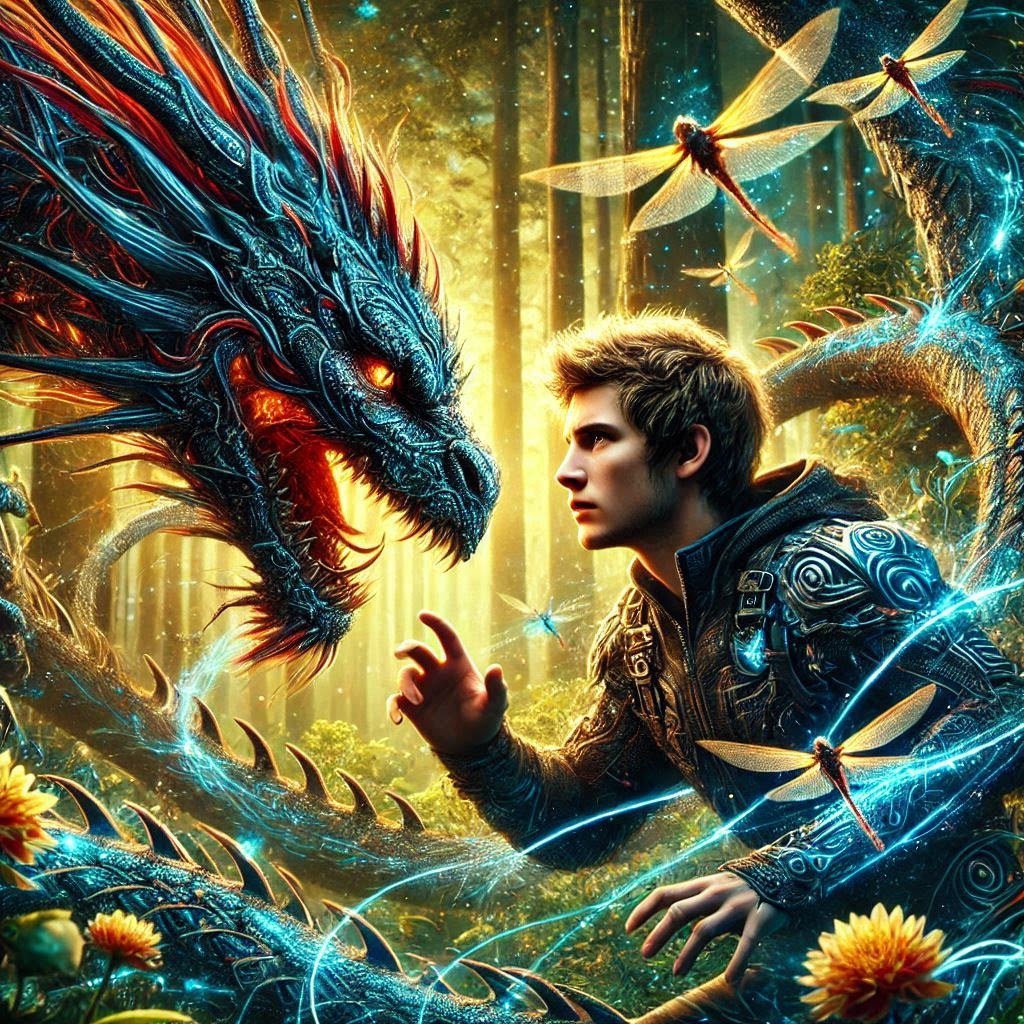

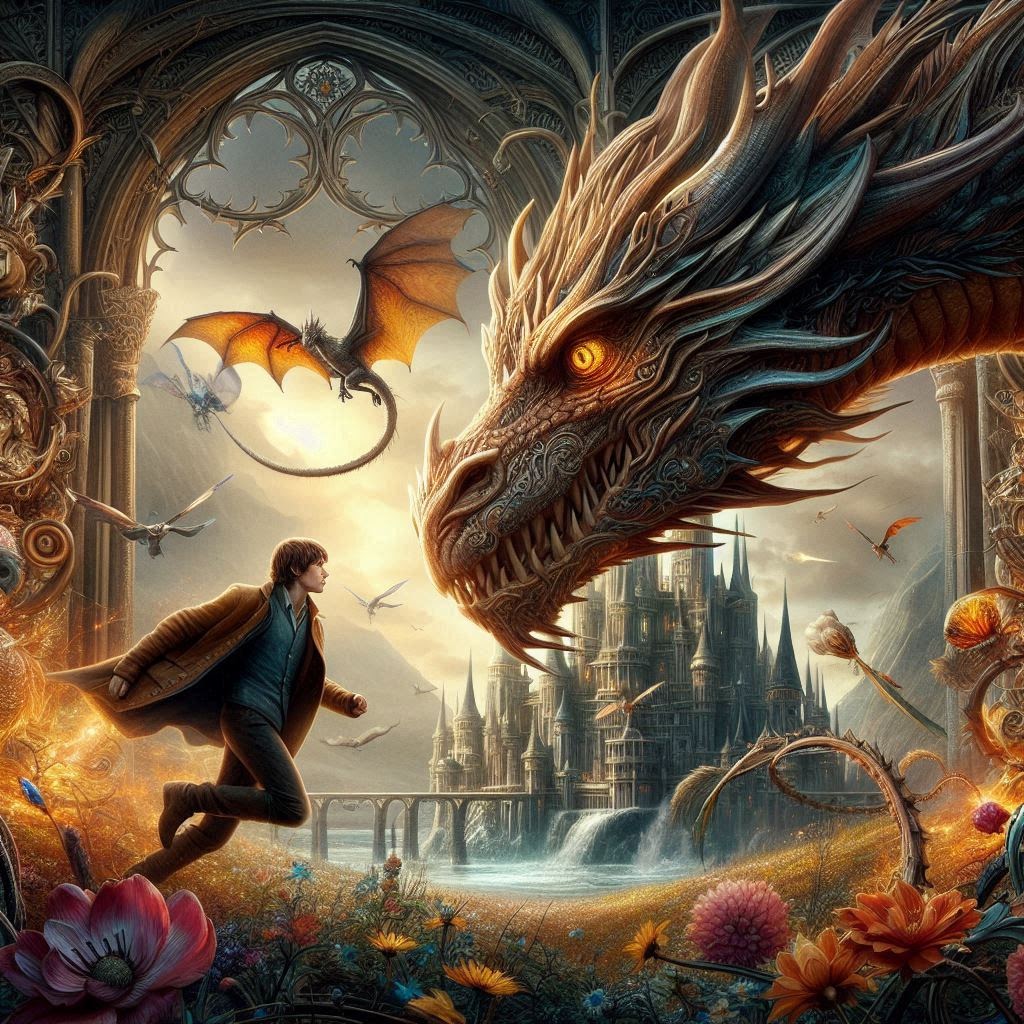






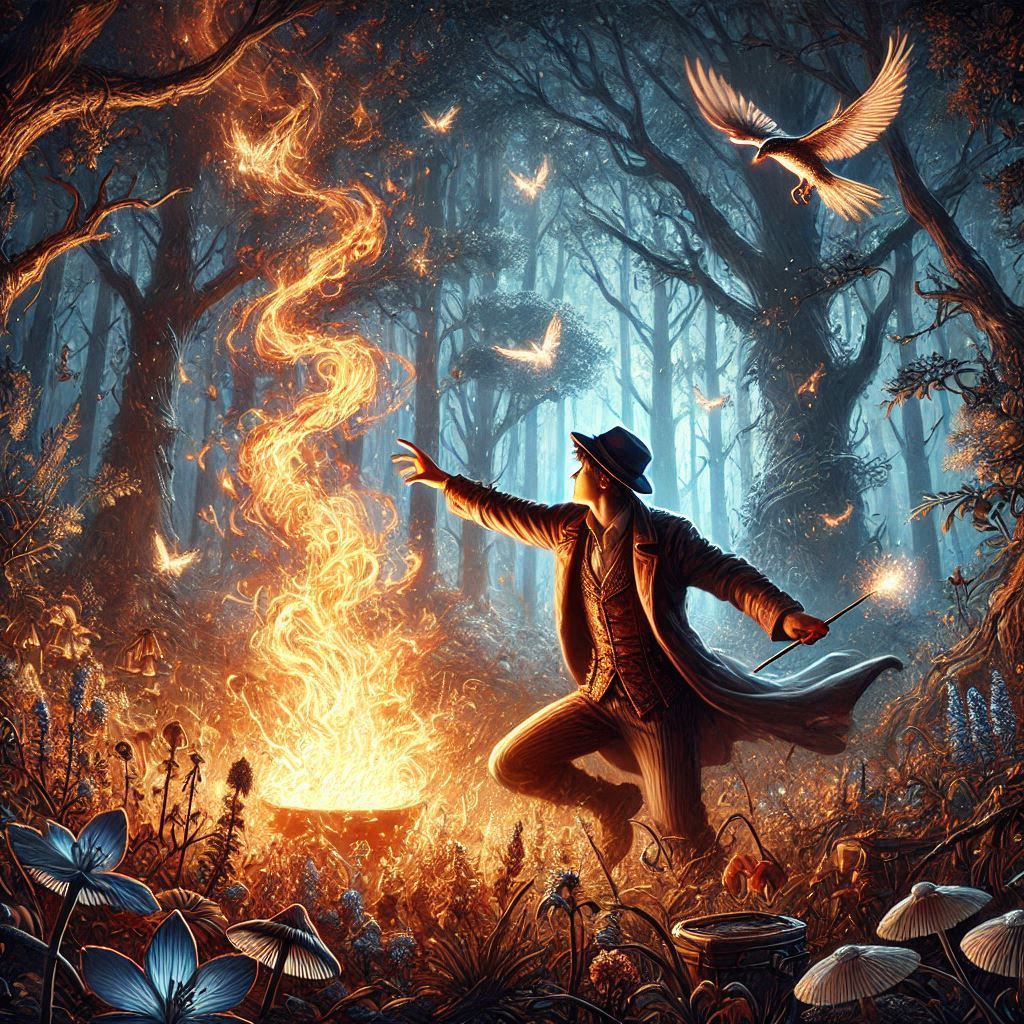







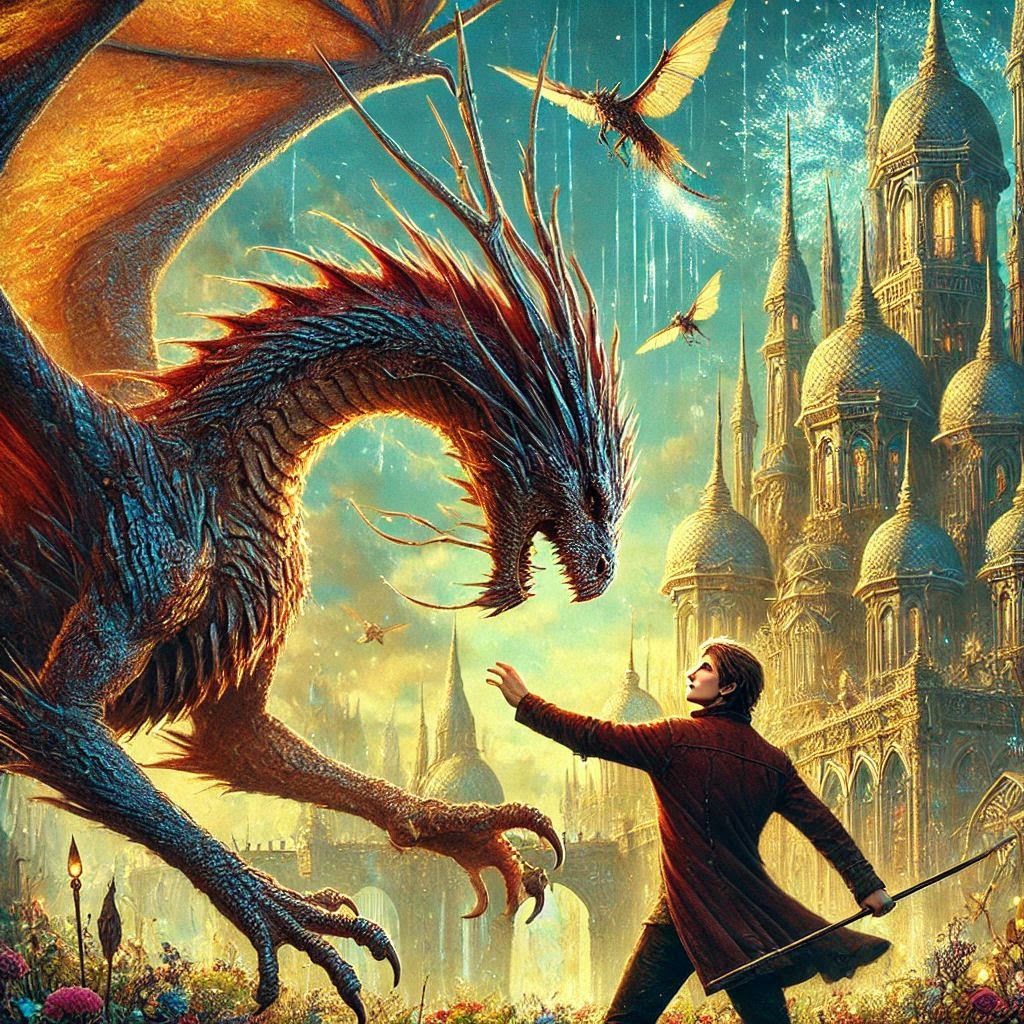
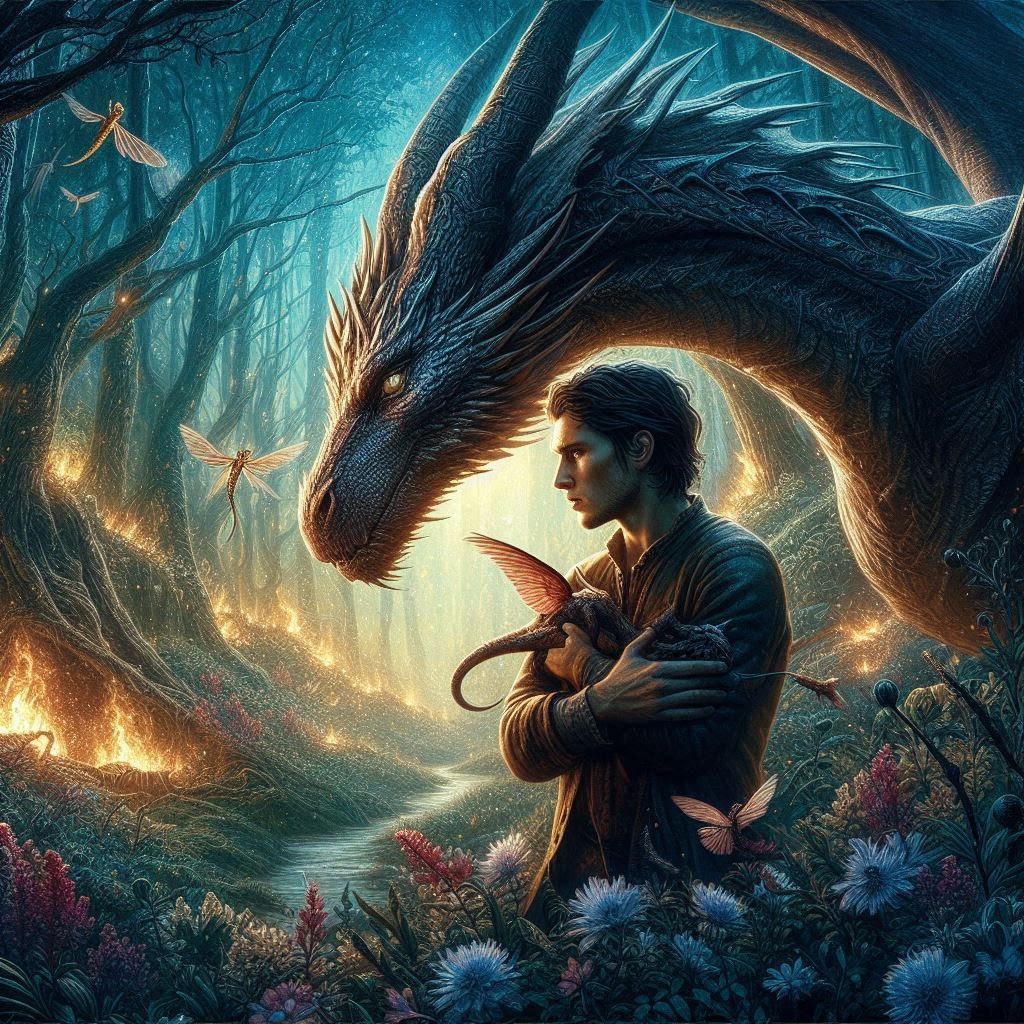






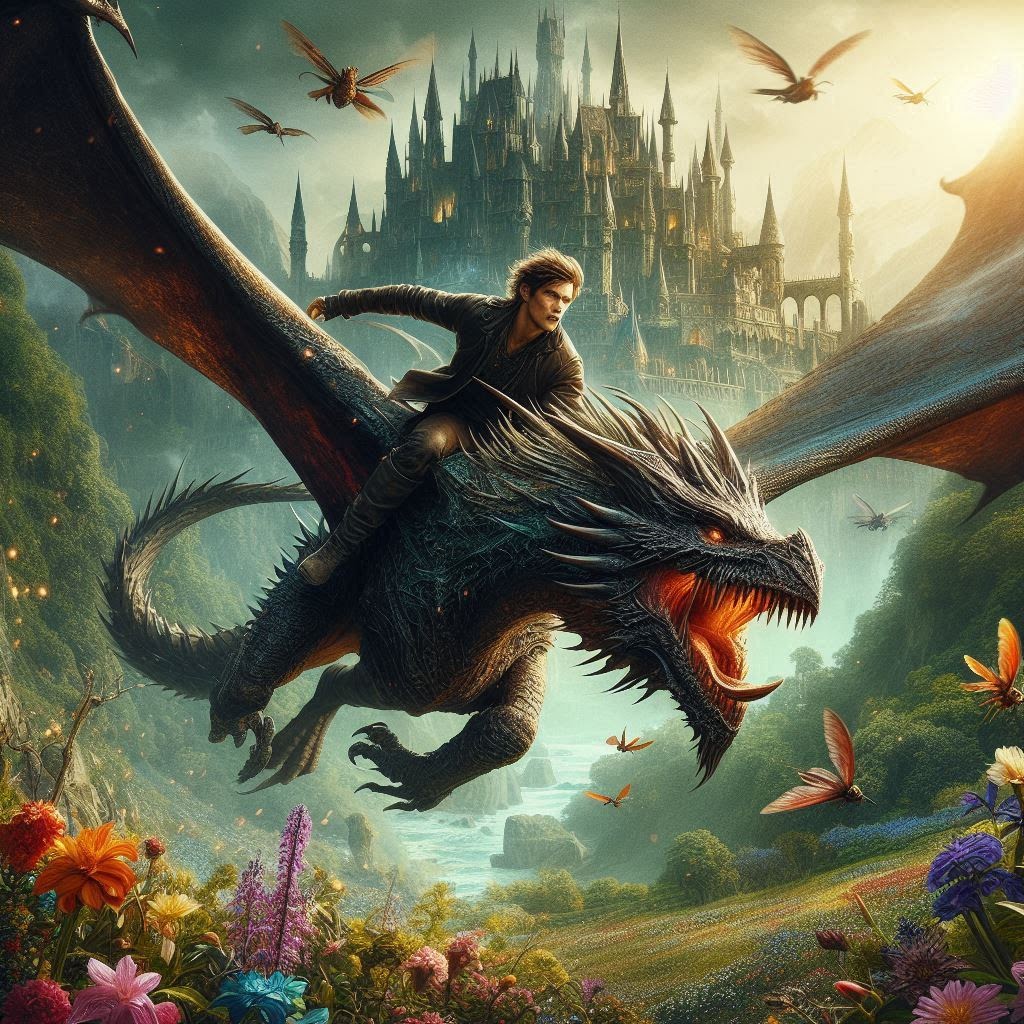




No comments:
Post a Comment